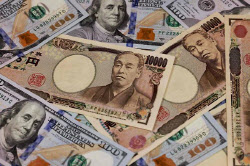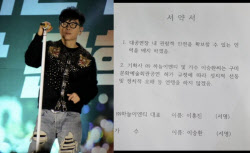“I think Trump may be more aggressive this time around on trade matters. Our trading partners need to take seriously Trump‘s proposal for a 10 to 20% universal tariff hike. The impact will depend largely on what tariff rate is announced, what timetable they’re implemented on, but also, how our partners respond”
Wendy Cutler, vice president of the Asia Society Policy Institute (ASPI), who was the U.S. chief negotiator during the 2006 KORUS FTA negotiations, said in an interview with Edaily that Trump‘s tariff war could intensify further. “Trump tried to balance US trade during his first term, but many people are criticizing his failure in doing so,” she said, adding that this is why he is raising tariffs and making more aggressive comments on trade.
|
Cutler expects Trump to use tariffs as leverage to revise bilateral and multilateral trade agreements. For starters, the U.S.-Mexico-Canada Trade Agreement (USMCA), signed during Trump‘s first term, requires a review of the agreement’s implementation every six years, the first of which is due in 2026. Whether it‘s Trump or Harris, Cutler expects the U.S. to prioritize revising the USMCA. “Mexico will be under pressure to renegotiate, including how to strengthen rules of origin for strategic manufactured products, including autos, and whether the USMCA labor provisions are sufficient,”
Cutler did not specifically address the possibility of Trump revising the KORUS FTA. “It’s an outdated agreement in many respects,,” she said, “I‘m not advocating for a renegotiation, I wonder if there are ways to quietly update our joint work in areas, where changes have occurred in the trade and investmen climate, including technological developments and economic security matters, including building resilient supply chaines.
Trump is poised for a “trade war” with China, threatening tariff hikes of at least 60 percentage points. “In many cases, tariffs on China are 25 to 30 percent now, and there is talk of adding 60 percentage points under Trump, which would take the tariffs to about 100 percent,” Cutler said, noting that such a move could trigger retaliation from China. “I think Beijing may would look way beyond tariffs, including holding back key items like critical minerals exports, hurting the United States, and to sending a clear message that these tariffs, at least in China’s view, are not welcome” she said.
“It‘s important for the Korean government to buy more from the U.S., but also find ways for Korean companies investing in the U.S. to source more from U.S. companies,” Cutler said. “I think this will help reduce the trade deficit between the two countries and reduce potential frictions”
“While Trump’s statements and proposals on trade and tariffs are all over he map, there is no doubt that he will take tariff actions early in a new term. South Korea, as well as out other trading partners need to be prepared for all types of twists and turns.”









![[포토]은행권 소상공인 금융지원 간담회](https://image.edaily.co.kr/images/Photo/files/NP/S/2024/12/PS24122300609t.jpg)
![[포토]인사청문회 출석한 마은혁 헌법재판관 후보자](https://image.edaily.co.kr/images/Photo/files/NP/S/2024/12/PS24122300404t.jpg)
![[포토]아침 영하 10도, 꽁꽁 얼어붙은 도심](https://image.edaily.co.kr/images/Photo/files/NP/S/2024/12/PS24122300843t.jpg)
![[포토]스케이트 타는 시민들로 북적](https://image.edaily.co.kr/images/Photo/files/NP/S/2024/12/PS24122200317t.jpg)
![[포토]기름값 10주째 올라…전국 휘발유 평균 1652.2원](https://image.edaily.co.kr/images/Photo/files/NP/S/2024/12/PS24122200258t.jpg)
![[포토]크리스마스 분위기](https://image.edaily.co.kr/images/Photo/files/NP/S/2024/12/PS24122200248t.jpg)
![[포토]'서울광장 스케이트장 좋아요'](https://image.edaily.co.kr/images/Photo/files/NP/S/2024/12/PS24122000768t.jpg)
![[포토] 나인퍼레이드 캠페인](https://image.edaily.co.kr/images/Photo/files/NP/S/2024/12/PS24122000496t.jpg)
![[포토]더불어민주당 최고위원회의 개최](https://image.edaily.co.kr/images/Photo/files/NP/S/2024/12/PS24122000232t.jpg)


![[포토]안소현-김성태 본부장,취약계증 후원금 전달식 진행](https://spnimage.edaily.co.kr/images/vision/files/NP/S/2024/12/PS24121400036h.jpg)


